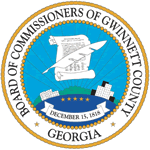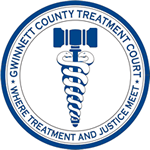Treatment Court
 |
 |
Drug Court
 |
Handbook |
 |
Community Peer Support sheets |
 |
Drug Screening Instructions |
 |
Referral Information |
Drug Court is a five-phase Superior Court level intervention program for adults who have been accused of a crime(s), and who are having difficulty maintaining their sobriety. It is a collaborative effort between in the Superior Court, District Attorney's Office, defense attorneys, law enforcement agencies, probation, treatment providers, and community partners. By working together, we seek to provide a variety of programs and consistent supervision geared toward supporting and helping you maintain a drug-free life. Drug Court involves frequent court appearances, random drug testing, as well as group and individual counseling. Drug Court awards incentives for compliant behavior and imposes sanctions for undesirable behavior. Participants who do not comply with the rules may be: placed in short-term custody, restart the current or previous phase of Drug Court, and/or a variety of other sanctions. Participants may also be terminated from Drug Court. It is our goal to improve the quality of life and reduce recidivism for participants. Those who graduate will have a solid foundation to build upon in order to become even more productive members of our community.
The Drug Court Judge will make all decisions regarding to participation in the Drug Court Program with input from the Drug Court team. The Drug Court team consists of the following members:
- Superior Court Judge
- Defense Attorney
- District Attorney
- Drug Court Coordinator / Drug Court Case Manager
- Treatment Provider
- Surveillance Officer
- Probation Services
Prior to each Drug Court session, the Drug Court Team members familiarize themselves with every participant's progress and set-backs so that they may discuss that progress during the Drug Court session.
If you are interested in the Gwinnett County Drug Court Program please contact our office:
- AccountabilityCourtReferrals@gwinnettcounty.com
- Intake Coordinator - (770) 822-8849
- Case Manager - (770) 822-7578 and (770) 822-8286
- Program Director - (770) 822-8558
- Assistant Program Director - (770) 822-7577
Gwinnett County Accountability Courts do not discriminate based on race, color, sex, language, religion, political or other opinion, national or social origin, property, birth or other status such as disability, age, marital and family status, sexual orientation and gender identity.
DUI Court
 |
Handbook |
 |
Community Peer Support sheets |
 |
Drug Screening Instructions |
 |
Referral Information |
DUI Court is a three-phase State Court level intervention program. The program is a minimum of twelve (12) months and consists of three (3) phases.
All phases of the program encompass vocational and educational components in conjunction with providing substance abuse treatment with Judicial oversight. It is a collaborative effort between the State Court, Solicitor's Office, defense attorneys, treatment providers, law enforcement agencies, probation, and community partners. This program provides intervention, and serves as a meaningful alternative to jail for the participant who are unable to function in the community without support. It is our goal to improve the quality of life and reduce recidivism for participants. Those who graduate will have a solid foundation to build upon in order to become even more productive members of our community.
The DUI Court Judge will make all decisions regarding your participation in the DUI Court Program with input from the DUI Court team. The DUI Court team consists of the following members:
- State Court Judge
- Defense Attorney
- Solicitor
- DUI Court Coordinator & Case Manager
- Treatment Provider
- Surveillance Officer
- Probation Services
Prior to each DUI Court session, the DUI Court team members familiarize themselves with every participant's progress and set-backs so that they may discuss that progress during the DUI Court session.
If you are interested in the Gwinnett County DUI Court Program please contact our office:
- AccountabilityCourtReferrals@gwinnettcounty.com
- Intake Coordinator - (770) 822-8849
- Case Manager - (770) 822-8849
- Program Director - (770) 822-8558
- Assistant Program Director - (770) 822-7577
Gwinnett County Accountability Courts do not discriminate based on race, color, sex, language, religion, political or other opinion, national or social origin, property, birth or other status such as disability, age, marital and family status, sexual orientation and gender identity.
Mental Health Court
 |
Handbook |
 |
Community Peer Support sheets |
 |
Drug Screening Instructions |
 |
Mental Health Court Referral Form |
 |
Referral Information |
Mental Health Court is a four-phase Superior Court level intervention program for adults who have been accused of a crime(s), and who are having difficulty maintaining their mental well-being and/or sobriety. It is a collaborative effort between in the Superior Court, District Attorney's Office, defense attorneys, treatment providers, law enforcement agencies, probation, and community partners. By working together, we seek to provide a variety of programs and consistent supervision geared toward supporting and helping our participants maintain a healthy life. Mental Health Court involves frequent court appearances and random drug testing, as well as group and individual counseling. Mental Health Court awards incentives for compliant behavior, and imposes sanctions for undesirable behavior. Participants who do not comply with the rules may be: placed in short-term custody, restart their current phase of Mental Health Court, and/or a variety of other sanctions. Participants may also be terminated from Mental Health Court for failure to comply. It is our goal to improve the quality of life and reduce recidivism for participants. Those who graduate will have a solid foundation to build upon in order to become even more productive members of our community.
The Mental Health Court Judge will make all decisions regarding to participation in the Mental Health Court Program with input from the Mental Health Court team. The Mental Health Court team consists of the following members:
- Superior Court Judge
- Defense Attorney
- District Attorney
- Mental Health Court Coordinator / Mental Health Court Case Manager
- Treatment Provider
- Surveillance Officer
- Probation Services
Prior to each Mental Health Court session, the Mental Health Court team members familiarize themselves with every participant's progress and set-backs so that they may discuss that progress during the Mental Health Court session.
If you are interested in the Gwinnett County Mental Health Court Program please contact our office:
- AccountabilityCourtReferrals@gwinnettcounty.com
- Intake Coordinator - (770) 822-8849
- Case Manager - (770) 822-8047
- Program Director - (770) 822-8558
- Assistant Program Director - (770) 822-7577
Gwinnett County Accountability Courts do not discriminate based on race, color, sex, language, religion, political or other opinion, national or social origin, property, birth or other status such as disability, age, marital and family status, sexual orientation and gender identity.
Veterans' Treatment Court - Superior Court
 |
Handbook |
 |
Community Peer Support sheets |
 |
Drug Screening Instructions |
 |
Veterans Treatment Court/Veterans Treatment Court - State Referral Form |
 |
Referral Information |
Veterans' Treatment Court is a four-phase Superior Court level intervention program for United States Armed Forces Veterans who have been accused of a crime(s), and who are having difficulty maintaining their mental well-being and/or sobriety. It is a collaborative effort between in the State Court, Solicitor's Office, defense attorneys, the Veterans Affairs, treatment providers, law enforcement agencies, probation, and community partners. By working together, we seek to provide a variety of programs and consistent supervision geared toward supporting and helping our participants maintain a healthy life. Mental Health Court involves frequent court appearances and random drug testing, as well as group and individual counseling. Mental Health Court awards incentives for compliant behavior, and imposes sanctions for undesirable behavior. Participants who do not comply with the rules may be: placed in short-term custody, restart their current phase of Mental Health Court, and/or a variety of other sanctions. Participants may also be terminated from Mental Health Court for failure to comply. It is our goal to improve the quality of life and reduce recidivism for participants. Those who graduate will have a solid foundation to build upon in order to become even more productive members of our community.
The Veterans Treatment Court Judge will make all decisions regarding to participation in the Veterans Treatment Court Program with input from the Veterans Treatment Court team. The Veterans Treatment Court team consists of the following members:
- Superior Court Judge
- Defense Attorney
- District Attorney
- Veterans Treatment Court Coordinator/ Veterans Treatment Court Case Manager
- Treatment Provider (Viewpoint Health and Dept. of Veterans Affairs)
- Surveillance Officer
- Probation Services
- Mentor Coordinator
Prior to each Veterans Treatment Court session, the Veterans Treatment Court team members familiarize themselves with your progress and set-backs so that they may discuss that progress with you during the Veterans Treatment Court session.
If you are interested in the Gwinnett County Veterans Treatment Court Program please contact our office:
- AccountabilityCourtReferrals@gwinnettcounty.com
- Intake Coordinator - (770) 822-8849
- Case Manager - (770) 822-8047
- Program Director - (770) 822-8558
- Assistant Program Director - (770) 822-7577
Gwinnett County Accountability Courts do not discriminate based on race, color, sex, language, religion, political or other opinion, national or social origin, property, birth or other status such as disability, age, marital and family status, sexual orientation and gender identity.
Veterans' Treatment Court - State Court
 |
Handbook |
 |
Community Peer Support sheets |
 |
Drug Screening Instructions |
 |
Veterans Treatment Court/Veterans Treatment Court - State Referral Form |
 |
Referral Information |
The Veterans' Intervention Program is a three-phase State Court level intervention program for United States Armed Forces Veterans who have been accused of a crime(s) in Gwinnett County and who are having difficulty maintaining their mental well-being as a result of a mental health diagnosis and/or substance abuse. The Veterans Intervention Program involves frequent court appearances, random drug testing, and compliance with an individualized treatment plan. The Veterans Intervention Program awards incentives for compliant behavior and imposes sanctions for non-compliant behavior. It is our goal to improve the quality of life and reduce recidivism for participants. Those who graduate will have a solid foundation to build upon in order to become even more productive members of our community.
The Veterans Intervention Program Judge will make all decisions regarding your participation in the Veterans Intervention Program, with input from the Veterans Intervention Program team. The Veterans Intervention Program team consists of the following members:
- State Court Judge
- Defense Attorney
- District Attorney
- Veterans Intervention Court Coordinator/ Veterans Intervention Court Case Manager
- Treatment Provider (Viewpoint Health and Dept. of Veterans Affairs)
- Surveillance Officer
- Probation Services
- Mentor Coordinator
Prior to each Veterans Intervention Program session, the Veterans Intervention Program team members familiarize themselves with your progress and set-backs so that they may discuss that progress with you during the Veterans Intervention Program session.
If you are interested in the Gwinnett County Veterans Intervention Court Program please contact our office:
- AccountabilityCourtReferrals@gwinnettcounty.com
- Intake Coordinator - (770) 822-8849
- Case Manager - (770) 822-8589
- Program Director - (770) 822-8558
- Assistant Program Director - (770) 822-7577
Gwinnett County Accountability Courts do not discriminate based on race, color, sex, language, religion, political or other opinion, national or social origin, property, birth or other status such as disability, age, marital and family status, sexual orientation and gender identity.




